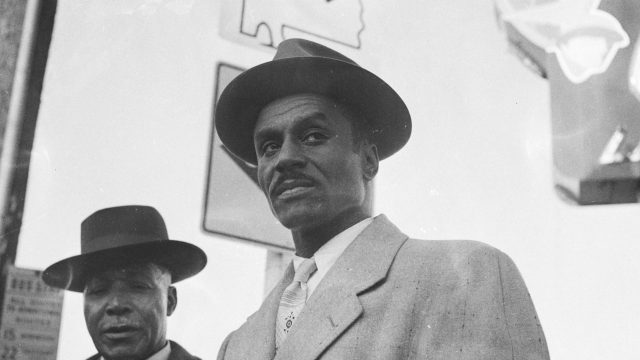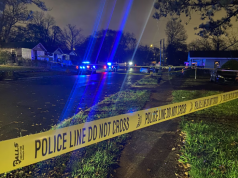
By Ryan Michaels
The Birmingham Times
A documentary on Birmingham’s history through the perspective of Civil Rights legend Rev. Fred L. Shuttlesworth will premiere at the recently renovated Carver Theatre on Dec. 15.
The documentary will also debut on local APT stations on Dec. 20 at 8 p.m.
The film, “Shuttlesworth,” features interviews with scholars like Andrew Manis and Diane McWhorter, who have written extensively about the Birmingham native and Civil Rights movement, as well as current leadership from the formerly Shuttlesworth-led Bethel Baptist Church in Collegeville and foot soldiers like Rev. Carter Gaston who, before leading Bethel himself, served as a bodyguard for Shuttlesworth.
Also in the film are numerous archival photos and some videos from the Alabama Department of Archives and History, including rare and potentially unseen images.
Social justice activist T. Marie King co-produced the film with J. Whitson, a senior producer at Alabama Public Television.
The idea for the film originally came from an unused interview Whitson did for APT with Shuttlesworth in 2007.
At the time, a sculpture memorializing the “four little girls” in the Sixteenth Street Baptist Church bombing of 1963 was in the works, Whitson said, but when the sculpture never came to fruition, the interview was shelved.
“Several years ago, I got to thinking, ‘Maybe we should do something with it,’ and then got the idea [that] we should make a documentary. His 100th birthday was coming up, I think, was really the impetus for deciding to do it when I did,” Whitson said.
“Shuttlesworth” not only deals with the personal history of Birmingham’s iconic Civil Rights leader but also uses the lens of Birmingham’s industrial labor history to tell the story of the civil rights movement within the city.
“It tries to trace the origins of Birmingham’s industrial history and follow what the corporations…did in creating segregation and sort of creating the system that kept wages down and everything else, and that segregation was a big part of using race to divide the labor pool in Birmingham,” Whitson said.
Through the multiple-year process of interviewing people and putting together the documentary, King and Whitson said they both found unique insights.
Hearing interviewees remember the moments where they realized they were being treated differently than white people stuck with her, King said.
“Their reaction to being made aware that there is some disparity, there’s some unfairness, between myself and kids that may not look like me, and that’s not okay and just the different things that kind of inspired them as young people to want to get involved with the movement, that was what stuck out to me,” King said.
The emotion that many of the people interviewed for the movie showed during their conversations was also meaningful, she added.
“We’re talking to people who literally walked this walk and experienced, whether it’s having to pay for your bus ride and get on at the back, whatever their experience was, and still hearing the emotion of how it impacted them. It really touches me in a way to be like, ‘Wow, that’s not far removed from J. [Whitson] and I,” King said.
“You talk about people in their 70s, early 80s for some of them, and that’s not that long ago,” she said.
Whitson said he found the city’s industrial past interesting “in a way that I haven’t gotten to do before and just seeing the forces at work and how they were there at the beginning, and they’re kind of still here in terms of the way that the local economy works,” Whitson said.
The negative effects of social phenomena like white flight still affect the city and region’s ability to progress, he said.
“It’s impossible to get any sort of regional cooperation across the sort of municipal area, and that is still very much rooted in the same kinds of attitudes that were literally responsible for firehoses and dogs in the 1960s, and that sort of stuff has changed its tactics, but I think its character is still kind of staying,” Whitson said.
From the film, Whitson said he hopes that people recognize that “one person can and did make an insanely huge difference in the world that we live in today and the city that we live in today.”
The history lingers, Whitson said, and “resignation and apathy” are common in the wake of the COVID-19 pandemic, but hope is necessary.
“I hope for people and that we can keep moving forward, but everybody needs to be willing to get in the game. We can’t expect other people to do it, and this is a story about a person that took charge and threw it all in, and he managed to make it happen,” Whitson said.
King agreed, saying everybody has “a role to play in communal change.”
“I hope that, from all the different stories and accounts that people hear, I hope it pushes them to identify what their role is in their respective communities, in their cities, in their neighborhood, to see how they can be a part of creating a better place than what they inherited,” said King.
“Shuttlesworth” premieres at the Carver Theatre on Dec. 15. All seats have been reserved.
Updated at 10:28 a.m. on 12/14/2022 to include the documentary’s television premiere date and time.



